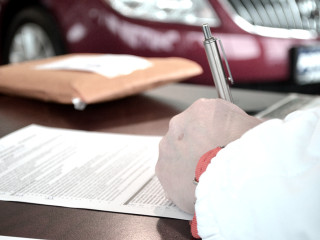Released July 24, 2015 | Full Decision
This claim for damages arose from a motor vehicle accident on August 29, 2012. Following the examinations for discovery, the defendants requested that the plaintiff attend at a defence medical examination with Dr. Rick Zarnett, an orthopaedic surgeon. The plaintiff agreed to attend at the medical examination provided that the defendants’ counsel provided her counsel with their “letter of instruction” to Dr. Zarnett.
The defendant refused to produce their “letter of instruction” and a motion in front of Master Graham ensued.
The plaintiff noted that Rule 53.03 (2.1) provides that a party who intends to call an expert witness at trial must provide a report containing (amongst other things) the “instructions provided to the expert in relation to the proceeding.” The plaintiff also argued that foundational material relied upon by an expert, including the instructions on which the expert proceeded, must be disclosed by the party seeking to call the expert at trial and in this regard she relied on the Court of Appeal’s decisions in Conceicao Farms Inc. v. Zeneca Corp., 2006 CanLII 31976 (ON CA), [2006] O.J. No. 3716 and Moore v. Getahun, 2015 ONCA 55 (CanLII), [2015] O.J. No. 398.
The defendants argued that rule 53.03(2.1) states only that counsel’s instructions to the expert must be contained in the expert’s report, and this provision cannot be interpreted as requiring production of the letter containing those instructions.
Master Graham concluded that any obligation to provide “material relating to formulation of the expressed opinion” does not arise until the party obtaining the expert report has exercised their option as to whether or not to call the expert as a witness at trial. Pursuant to rule 53.03(2.1)3, the instructions provided to Dr. Zarnett must be included in his report if the defendants intend to rely on it, but this rule does not specifically require production of the letter. Master Graham went on to hold that if the defendants do decide to call Dr. Zarnett to testify at trial, they will be taken to have waived privilege over their instructing letter by way of the limited “implied waiver” referred to in paragraph 75 of Moore v. Getahun, supra, which applies to “material relating to formulation of the expressed opinion”. Therefore, should the defendants elect to call Dr. Zarnett as a witness at trial; they must produce their counsel’s instructing letter to him.
To summarize, a defendant arranging a defence medical examination is not obliged to produce its instructing letter to the defence medical expert at the time of scheduling the examination or at the time of the mandatory service of that expert’s report under rule 33.06(2). However, once the defendant elects to call the defence medical expert as a witness at trial, the instructing letter to the medical expert must be produced. Master Graham noted that the same ruling would apply to plaintiff’s experts.
Motion to compel plaintiff to attend defence medical with Dr. Zarnett allowed. Defendant ordered to produce their instructing letter to Dr. Zarnett in the event that they call Dr. Zarnett as a witness at trial.
Plaintiff’s counsel: Suhaib Ibrahim
Read the full decision on CanLii











